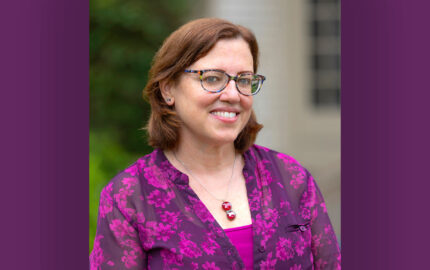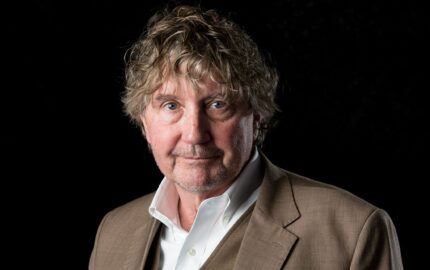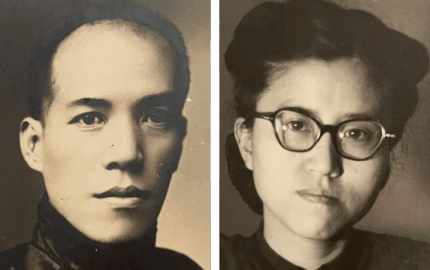New York, (April 1, 2008) — The Columbia University Graduate School of Journalism and the Nieman Foundation for Journalism at Harvard University announce this year’s winners of the Lukas Prize Project Awards. The Awards, established in 1998, recognize excellence in nonfiction books that exemplify the literary grace and commitment to serious research and social concern that characterized the distinguished work of the award’s Pulitzer Prize-wining namesake J. Anthony Lukas, who died in 1997.
The 2008 awardees include a vividly revealing journey into the inner chambers of the Supreme Court by Jeffrey Toobin; a moving and morally complex meditation on the origins of the American identity during the Revolution and Seven Years’ War by Peter Silver; and a gripping global narrative showing how women’s rights are at the core of the world’s most urgent struggles by Michelle Goldberg. The awards will be presented by Patricia Limerick at a ceremony to be held on Tuesday, May 13 at the Nieman Foundation. Colin and Joan Diver, one of the three families who are major subjects of J. Anthony Lukas’ Pulitzer Prize-winning work, “Common Ground,” which chronicles the battle over school integration in Boston, will speak on the experience of having a writer tell their story.
The prize given to Peter Silver is the Mark Lynton History Prize, named for the late Mark Lynton, business executive and author of “Accidental Journey: A Cambridge Internee’s Memoir of World War II.” Lynton was an avid proponent of the writing of history, and the Lynton family has sponsored the Lukas Prize Project since its inception.
Following are the winners, finalists, judges and the judges’ citations for the three Lukas Awards:
J. ANTHONY LUKAS BOOK PRIZE ($10,000)
Jeffrey Toobin for “The Nine: Inside the Secret World of the Supreme Court” (Doubleday)
The judges remarked: “Jeffrey Toobin tells the story of the Conservative rebellion that has transformed the character of the court, one justice at a time. As Justice Stephen Breyer said from the bench last June, dissenting from a decision that erodes school desegregation, ‘It is not often in law that so few have so quickly changed so much.’ In the tradition of J. Anthony Lukas, Toobin has written a work of great narrative journalism in which the particular and the personal illuminate an historic moment. ‘The Nine’ is a masterful group portrait of the justices who will decide what justice means in America.”
The judges named one finalist: Alan Weisman for “The World Without Us” (St. Martin’s Press/ Thomas Dunne Books).
JUDGES FOR THE J. ANTHONY LUKAS BOOK PRIZE: Connie Bruck, staff writer at The New Yorker; Patricia Nelson Limerick, faculty director of the Center of the American West at the University of Colorado at Boulder; and Jonathan Weiner, author of “The Beak of the Finch.”
MARK LYNTON HISTORY PRIZE ($10,000)
Peter Silver for “Our Savage Neighbors: How Indian War Transformed Early America” (W.W. Norton & Company)
The judges noted that “Peter Silver's brilliant analysis of frontier violence in the era of the Seven Years' War and the Revolution disturbingly suggests that they depended first of all on the creation of a terrifying enemy. In compulsively readable, quicksilver prose, he shows how ethnically and religiously fragmented settler groups who in times of peace shared little beyond mutual dislike and distrust found common ground in their fear of Indians and came to think of themselves less as English or Scots or Germans than as white people — and Americans — under the pressure of war.”
Two finalists were named: Ramachandra Guha for “India After Gandhi: The History of the World’s Largest Democracy” (HarperCollins Publishers) and Saul Friedländer for “The Years of Extermination: Nazi Germany and the Jews, 1939-1945” (HarperCollins Publishers).
JUDGES FOR THE MARK LYNTON HISTORY PRIZE: Fred Anderson, professor of history at the University of Colorado at Boulder; Caroline Elkins, associate professor of history at Harvard University; and Jane Kramer, European correspondent for The New Yorker.
J. ANTHONY LUKAS WORK-IN-PROGRESS AWARD ($30,000)
The Lukas Work-in-Progress Award is given each year to assist in the completion of a significant work of narrative nonfiction on an American topic of political or social concern.
Michelle Goldberg for “The Means of Reproduction” (to be published by The Penguin Press in 2009)
“‘The Means of Reproduction’ is a book of vaulting ambition and intellectual passion” noted the judges for the award, and “Michelle Goldberg looks at literally the entire world through the prism of women's issues and women's rights. From abortion to female circumcision, from sexual trafficking to abstinence-only programs, from Poland to Ethiopia to Nicaragua, she examines the conflict between self-determination and patriarchal tradition. And, in case after case, she contends, a conservative American administration, theologically and pragmatically bound to fundamentalist Christianity, plays either a direct or indirect role. In the tradition of Anthony Lukas, Michelle Goldberg explores vast issues through individual lives.”
Two finalists for the J. Anthony Lukas Work-in-Progress Award were also named: Lyanda Lynn Haupt for “Crow Planet” (to be published by Little, Brown and Company) and Cecilia Ballí for her currently untitled book on the Juárez murders (to be published by Henry Holt and Company/Metropolitan Books).
JUDGES FOR THE J. ANTHONY LUKAS WORK-IN-PROGRESS AWARD: Kennedy Fraser, author of “Ornament and Silence”; Samuel G. Freedman, professor at Columbia Graduate School of Journalism School; and Suzannah Lessard, winner of the 2005 Lukas Work-in-Progress Award and author of “Architect of Desire.”
Members of the Lukas Prize Project Committee
Arthur Gelb, author, and Linda Healey, editor and Mr. Lukas’ widow, are co-chairs of the J. Anthony Lukas Prize Project Committee. Other members are Jonathan Alter, author and Newsweek columnist; Alan Brinkley, Columbia University Provost and Allan Nevins Professor of History; Ellen Chesler, director of Women and Public Policy Initiative at Hunter College; Colin Diver, president of Reed College; Phyllis Grann, editor; Robert Giles, curator, Nieman Foundation; Vartan Gregorian, president, The Carnegie Corporation; Bill Kovach, chairman of the Committee of Concerned Journalists; Nicholas Lemann, dean of Columbia’s Graduate School of Journalism and Henry R. Luce Professor; Lili Lynton, business consultant; Marion Lynton, Mr. Lynton’s widow; Kati Marton, author and human rights activist; and Rosalind Rosenberg, professor of history at Barnard College.
About Columbia Graduate School of Journalism
For almost a century, the Columbia University Graduate School of Journalism has been preparing journalists in a program that stresses academic rigor, ethics, journalistic inquiry and professional practice. Founded by Joseph Pulitzer in 1912, the school offers master of science, master of arts and doctor of philosophy degrees. For more information about the Journalism School visit journalism.columbia.edu.
The Nieman Foundation for Journalism at Harvard
Established in 1938, the Nieman Foundation for Journalism at Harvard administers the oldest fellowship program for midcareer journalists in the world. During the past 70 years, more than 1,200 journalists of accomplishment from 88 countries have received Nieman Fellowships and have visited Harvard for a year of study and exploration. The Nieman Foundation also publishes the quarterly magazine Nieman Reports and is the home of both the Nieman Program on Narrative Journalism and the Nieman Watchdog Journalism Project, which encourages reporters and editors to monitor and hold accountable those who exert power in all aspects of public life. For more information, visit www.nieman.harvard.edu.
The 2008 awardees include a vividly revealing journey into the inner chambers of the Supreme Court by Jeffrey Toobin; a moving and morally complex meditation on the origins of the American identity during the Revolution and Seven Years’ War by Peter Silver; and a gripping global narrative showing how women’s rights are at the core of the world’s most urgent struggles by Michelle Goldberg. The awards will be presented by Patricia Limerick at a ceremony to be held on Tuesday, May 13 at the Nieman Foundation. Colin and Joan Diver, one of the three families who are major subjects of J. Anthony Lukas’ Pulitzer Prize-winning work, “Common Ground,” which chronicles the battle over school integration in Boston, will speak on the experience of having a writer tell their story.
The prize given to Peter Silver is the Mark Lynton History Prize, named for the late Mark Lynton, business executive and author of “Accidental Journey: A Cambridge Internee’s Memoir of World War II.” Lynton was an avid proponent of the writing of history, and the Lynton family has sponsored the Lukas Prize Project since its inception.
Following are the winners, finalists, judges and the judges’ citations for the three Lukas Awards:
J. ANTHONY LUKAS BOOK PRIZE ($10,000)
Jeffrey Toobin for “The Nine: Inside the Secret World of the Supreme Court” (Doubleday)
The judges remarked: “Jeffrey Toobin tells the story of the Conservative rebellion that has transformed the character of the court, one justice at a time. As Justice Stephen Breyer said from the bench last June, dissenting from a decision that erodes school desegregation, ‘It is not often in law that so few have so quickly changed so much.’ In the tradition of J. Anthony Lukas, Toobin has written a work of great narrative journalism in which the particular and the personal illuminate an historic moment. ‘The Nine’ is a masterful group portrait of the justices who will decide what justice means in America.”
The judges named one finalist: Alan Weisman for “The World Without Us” (St. Martin’s Press/ Thomas Dunne Books).
JUDGES FOR THE J. ANTHONY LUKAS BOOK PRIZE: Connie Bruck, staff writer at The New Yorker; Patricia Nelson Limerick, faculty director of the Center of the American West at the University of Colorado at Boulder; and Jonathan Weiner, author of “The Beak of the Finch.”
MARK LYNTON HISTORY PRIZE ($10,000)
Peter Silver for “Our Savage Neighbors: How Indian War Transformed Early America” (W.W. Norton & Company)
The judges noted that “Peter Silver's brilliant analysis of frontier violence in the era of the Seven Years' War and the Revolution disturbingly suggests that they depended first of all on the creation of a terrifying enemy. In compulsively readable, quicksilver prose, he shows how ethnically and religiously fragmented settler groups who in times of peace shared little beyond mutual dislike and distrust found common ground in their fear of Indians and came to think of themselves less as English or Scots or Germans than as white people — and Americans — under the pressure of war.”
Two finalists were named: Ramachandra Guha for “India After Gandhi: The History of the World’s Largest Democracy” (HarperCollins Publishers) and Saul Friedländer for “The Years of Extermination: Nazi Germany and the Jews, 1939-1945” (HarperCollins Publishers).
JUDGES FOR THE MARK LYNTON HISTORY PRIZE: Fred Anderson, professor of history at the University of Colorado at Boulder; Caroline Elkins, associate professor of history at Harvard University; and Jane Kramer, European correspondent for The New Yorker.
J. ANTHONY LUKAS WORK-IN-PROGRESS AWARD ($30,000)
The Lukas Work-in-Progress Award is given each year to assist in the completion of a significant work of narrative nonfiction on an American topic of political or social concern.
Michelle Goldberg for “The Means of Reproduction” (to be published by The Penguin Press in 2009)
“‘The Means of Reproduction’ is a book of vaulting ambition and intellectual passion” noted the judges for the award, and “Michelle Goldberg looks at literally the entire world through the prism of women's issues and women's rights. From abortion to female circumcision, from sexual trafficking to abstinence-only programs, from Poland to Ethiopia to Nicaragua, she examines the conflict between self-determination and patriarchal tradition. And, in case after case, she contends, a conservative American administration, theologically and pragmatically bound to fundamentalist Christianity, plays either a direct or indirect role. In the tradition of Anthony Lukas, Michelle Goldberg explores vast issues through individual lives.”
Two finalists for the J. Anthony Lukas Work-in-Progress Award were also named: Lyanda Lynn Haupt for “Crow Planet” (to be published by Little, Brown and Company) and Cecilia Ballí for her currently untitled book on the Juárez murders (to be published by Henry Holt and Company/Metropolitan Books).
JUDGES FOR THE J. ANTHONY LUKAS WORK-IN-PROGRESS AWARD: Kennedy Fraser, author of “Ornament and Silence”; Samuel G. Freedman, professor at Columbia Graduate School of Journalism School; and Suzannah Lessard, winner of the 2005 Lukas Work-in-Progress Award and author of “Architect of Desire.”
Members of the Lukas Prize Project Committee
Arthur Gelb, author, and Linda Healey, editor and Mr. Lukas’ widow, are co-chairs of the J. Anthony Lukas Prize Project Committee. Other members are Jonathan Alter, author and Newsweek columnist; Alan Brinkley, Columbia University Provost and Allan Nevins Professor of History; Ellen Chesler, director of Women and Public Policy Initiative at Hunter College; Colin Diver, president of Reed College; Phyllis Grann, editor; Robert Giles, curator, Nieman Foundation; Vartan Gregorian, president, The Carnegie Corporation; Bill Kovach, chairman of the Committee of Concerned Journalists; Nicholas Lemann, dean of Columbia’s Graduate School of Journalism and Henry R. Luce Professor; Lili Lynton, business consultant; Marion Lynton, Mr. Lynton’s widow; Kati Marton, author and human rights activist; and Rosalind Rosenberg, professor of history at Barnard College.
About Columbia Graduate School of Journalism
For almost a century, the Columbia University Graduate School of Journalism has been preparing journalists in a program that stresses academic rigor, ethics, journalistic inquiry and professional practice. Founded by Joseph Pulitzer in 1912, the school offers master of science, master of arts and doctor of philosophy degrees. For more information about the Journalism School visit journalism.columbia.edu.
The Nieman Foundation for Journalism at Harvard
Established in 1938, the Nieman Foundation for Journalism at Harvard administers the oldest fellowship program for midcareer journalists in the world. During the past 70 years, more than 1,200 journalists of accomplishment from 88 countries have received Nieman Fellowships and have visited Harvard for a year of study and exploration. The Nieman Foundation also publishes the quarterly magazine Nieman Reports and is the home of both the Nieman Program on Narrative Journalism and the Nieman Watchdog Journalism Project, which encourages reporters and editors to monitor and hold accountable those who exert power in all aspects of public life. For more information, visit www.nieman.harvard.edu.


